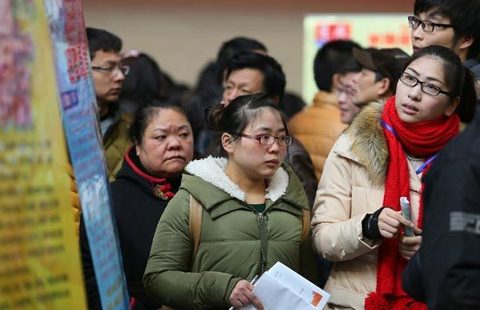Ageing China draws investors to its "hot as Internet" healthcare sector
(Agencies) Updated: 2015-02-11 09:56That optimism has pushed valuations for some firms steadily higher. Phoenix Healthcare Group Co. Ltd, China's No.1 private hospital group, listed in Hong Kong in December 2013 at 25.1 times its expected earnings. It now trades around 35 times.
Other risks for prospective investors in China, where government policies are often unpredictable, include lack of doctors and the lengthy approval process for hospital licenses.
The country had 14.6 physicians per 10,000 people in 2012 compared with 38.5 in Australia, 24.2 in the United States and 17.6 in Brazil, according to World Health Organization data.
"When you look at the hospital and provision sector in particular, the point around doctor availability is an important one," said Vikram Kapur, a partner at consulting firm Bain & Co. "So the risk to be managed is around making sure that you can attract enough physicians to private institutions."
Appealing investment
TPG, Blackstone Group LP and Chinese drugmaker Shanghai Fosun Pharmaceutical Group Co Ltd are among investors that have already bought into hospitals, medical device makers and service providers in China.
"We are very positive on the New China, especially the healthcare sector," said Kinger Lau, chief China strategist at Goldman Sachs. "The concept of reform in the healthcare sector is very appealing from an investment point of view as living standards improve and the population ages."
IHH Healthcare, Asia's largest hospital operator, already has a hospital in Shanghai and smaller clinics in the country and is in talks to expand further in China, Chairman Abu Bakar Suleiman told Reuters.
"China is big, so it's not just about going into Beijing and Shanghai," Suleiman said. "For the private sector, these are very early days. We feel it's a good thing for us to come in now."
- China to show its IT power in CeBIT 2015
- Patent dispute threatens Xiaomi's India future
- Joint 5G standards to be set
- Chinese premier sees innovation countering slowdown
- Interest rate cut more likely
- Cheaper scheme launched for imported cars
- China's outstanding social financing up 14.3% in 2014
- China should be alert to deflation risks

















